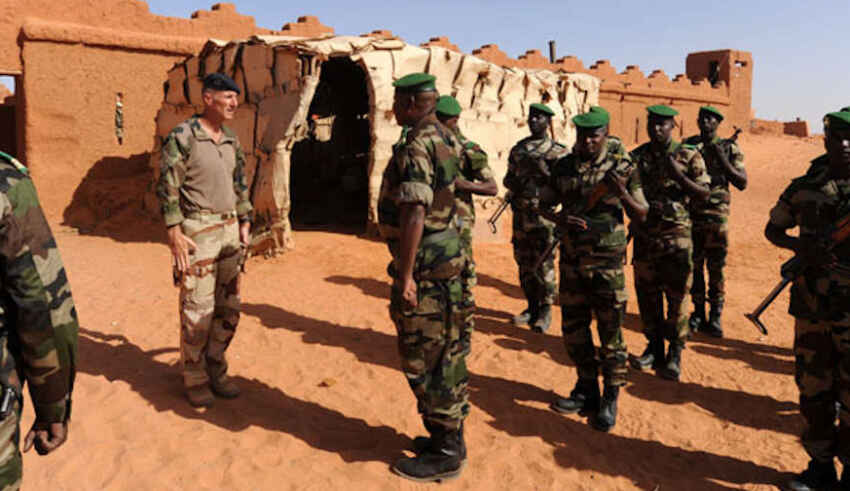
The very same day France withdrew its last military unit from Mali, signaling the end of almost a decade-long operation at the Sahel region that left the country in a crisis, Mali’s foreign affairs Minister, Abdoulaye Diop, in a letter sent to the United Nations Security Council accused France for supporting local armed groups. In the letter, Abdoulaye Diop argues that in the last year, French forces have repeatedly breached Mali’s airspace using drones, military helicopters, and fighter jets with the aim to collect information for the benefit of terrorist groups and supply them with arms and ammunition. Abdoulaye Diop is calling for an emergency meeting with the UNSC to discuss the “acts of aggression”, as he describes them, by the former colonial power against the country. In addition, he notes that in case the situation continues the country reserves the right to use self-defense. France’s answer came through its embassy in Mali stating that “France has obviously never supported, directly or indirectly, these terrorist groups, who remain its enemies everywhere on earth.”
In the letter are listed several events, including reconnaissance missions operated by France over Malian forces and assistance to the transportation of armed groups. The Mali side claims that they have several pieces of evidence of missions in the country’s eastern half, near Gao, Timbuktu, and Goundam, which aimed to support terrorist groups, including forces aligned with al-Qaeda and Daesh.
However, it is not the first time Mali has accused France of helping terrorism in its territory. In the past, Malian Prime Minister Choguel Kokalla Maïga stated that the French intervention in Mali gave time for terrorist groups to regroup, accusing the country’s former colonists of conducting a “de-facto partition” of Mali. As he claimed, “the intervention turned into a de-facto partition of Mali, which contributed to the sanctuarisation of our territories for the terrorists who had time to take refuge and reorganize themselves in order to come back in force”. During the same period, Prime Minister Maïga told Russian media that France has handed over Kidal, a town in the north of Mali which is under French control, to Ansar al-Din, a terrorist group linked to Al-Qaeda. He also went a step further supporting that they have evidence that proves the participation of France in the training of those armed groups.
Mali’s accusations against France came a few years after allegations that France is providing weapons to Boko Haram terrorists in Nigeria became public.
Boko Haram is an Islamic sect based in northeastern Nigeria that seeks to overturn the Nigerian Government and impose a regime based on Islamic law. Although the group, which name means “Western education is forbidden”, existed since the 1990s gained international attention after 2014. After reaching its peak in 2015, the number of violent acts attributed to Boko haram fell dramatically as the Nigerian forces, with assistance from Benin, Cameroon, Chad, and Niger, managed to push the group out of several areas in the northeastern part of the country.
In 2019, pictures appeared on tweeter showing containers full of illegal firearms, found by Nigerian customs officials in 2017 along with a claim that the weapons were sent for the Boko Haram sect by France. The tweet placed in the line of fire Nigerian officials, accusing them of working with France to fund and arm Boko Haram. The same year that the illegal containers were found, claims were published in a newspaper that the Nigerian military had arrested a French National who, according to the paper report, was assisting the Boko Haram insurgency. Noteworthy is that the French Ambassador to Nigeria, Denys Gauer, felt the need to answer those accusations, declaring that France has no hand in the Boko Haram insurgency.
Although we are way passed colonial times, French officials seem to uphold a colonial mindset. Through influencing the political and economic stability and security in Francophone Africa, France has attempted to maintain control in the area. Both operations mentioned above in Mali and Nigeria are clear examples of the French attempts to destabilize the African countries, create a security crisis and retain a hegemonic foothold in its former colonies.
By The European Institute for International Law and International Relations.













